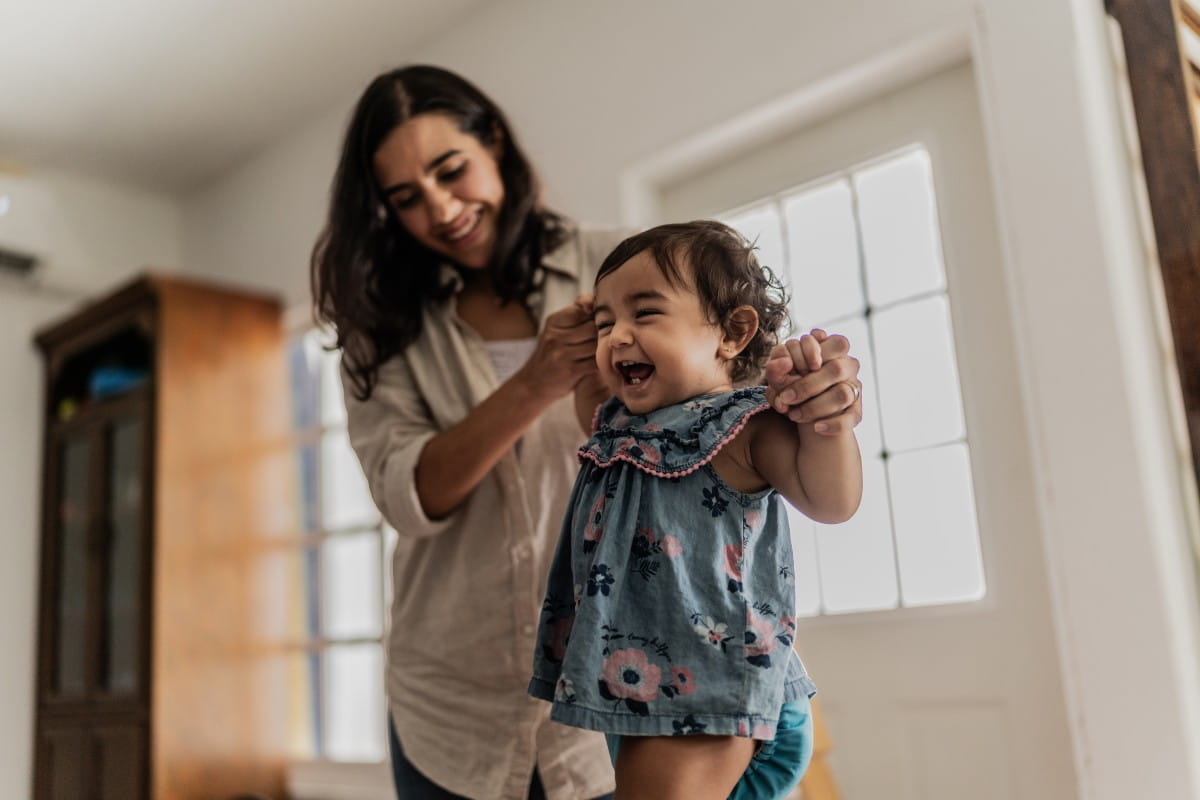Sure, everyone snores now and then – sometimes loudly. But it’s a little unsettling to hear those loud, rough noises coming from your own sleeping child.
“Sometimes children snore when air cannot flow freely through the mouth and nose. Tissues in the throat relax and partially block the airway. Snoring in children can be linked to daytime sleepiness, irritability, behavior and attention problems, and even growth delay.” says Catherine Lintzenich, M.D., a board-certified otolaryngologist with Riverside Ear, Nose and Throat Physicians & Surgeons.
While some snoring is normal, severe snoring may signal that your child has swollen tonsils, sleep apnea or other issues that need medical attention.
It’s good for parents to understand the causes of loud snoring and when to consult your child’s health care provider.
What causes the airway blockage that leads to snoring?
According to the American Academy of Otolaryngology – Head and Neck Surgery, approximately 10% of children snore regularly.
“When you hear simple snoring, it’s very possible that your child has a stuffy nose, cold or allergies. The congestion blocks the airways and makes the snoring noise. If your child’s tonsils (small glands on each side of the throat) and adenoids (small glands at the top of the throat behind the nose) are enlarged, these tissues narrow their airway. As your child breathes, these tissues vibrate, and that’s what causes the snoring sound.” says Dr. Lintzenich.
In two to four percent of children who snore regularly, these issues are severe, and the child’s airway becomes significantly blocked. This condition is called obstructive sleep apnea.
What is sleep apnea? What should a parent look for?
With obstructive sleep apnea, children actually experience periodic disruptions in breathing while asleep. That’s because their airway is partially or completely blocked. “Keep in mind – not every child who snores has sleep apnea, but loud snoring is a key symptom,” says Dr. Lintzenich. “Sometimes parents will also notice a long pause in breathing followed by snorting sounds, choking noises or gasps for air.”
Other signs of sleep apnea in children include:
- Breathing mainly through the mouth
- Bedwetting
- Restless sleep
- Sleepwalking
- Sweating
During the day, children with sleep apnea might be sleepy and irritable, display hyperactive behavior and have difficulty concentrating at school. Some children are mistakenly treated for ADHD when they actually have sleep apnea.
If you notice the symptoms above, talk with your child’s health care provider.
Treatment for excessive, loud snoring and sleep apnea
Typically, your child’s health care provider will review your child’s medical history and sleep habits, do a physical exam and possibly refer you to an ear, nose and throat (ENT) specialist for evaluation and treatment.
Contact Riverside
If your child is experiencing loud snoring, the ENT specialists at Riverside offer prompt, expert treatment. Find a provider near you.



